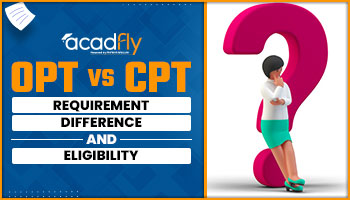

Returning to India after studying MBBS abroad involves a series of steps to ensure you can practice medicine effectively and seamlessly reintegrate into the Indian healthcare system. Returning to India After MBBS requires understanding and fulfilling the requirements set by Indian medical authorities, navigating the licensing process, and adapting to the local healthcare environment. This transition involves specific procedures and regulations that you need to follow to establish your medical practice in India. Understanding these steps will help you smoothly transition and make the most of your international medical education.
Understanding Indian Medical Licensing Requirements
Understanding Indian medical licensing requirements is crucial for Returning to India After MBBS. Once you’ve completed your medical degree abroad, you need to meet certain criteria to practice medicine in India. This process involves several steps to ensure that your qualifications are recognized and that you are eligible to work within the Indian healthcare system.
First, you must register with the Indian Medical Licensing authorities. This typically involves verifying your overseas medical degree with the Medical Council of India (MCI) or the National Medical Commission (NMC). You will need to submit your academic transcripts, proof of clinical experience, and any additional documentation required by the licensing body. This step confirms that your education meets Indian standards.
Next, you will need to pass the Foreign Medical Graduate Examination (FMGE) or similar tests as part of Medical Practice Procedures. This examination assesses your medical knowledge and skills to ensure they align with Indian medical practices. Passing this exam is a critical step for gaining official certification to practice in India.
Finally, Reintegrating into Indian Healthcare involves adapting to the local medical practices and regulations. This includes understanding the Indian healthcare system, familiarizing yourself with local protocols, and possibly undergoing additional training or orientation. Completing these requirements will enable you to start practicing medicine in India and contribute effectively to the healthcare system.
Steps to Reintegrate into the Indian Healthcare System
Reintegrating into the Indian healthcare system after completing your MBBS abroad involves several key steps. Here’s how you can smoothly transition and start practicing medicine in India:
Familiarize Yourself with Indian Medical Practices
Understanding Practicing Medicine in India is essential. Familiarize yourself with local medical protocols, treatment guidelines, and patient care standards. This will help you adapt your skills to align with Indian healthcare practices and ensure you provide effective and relevant medical care.
Complete Necessary Licensing and Certification
To meet Indian Medical Licensing requirements, ensure that you have passed the Foreign Medical Graduate Examination (FMGE) or any other required exams. Register with the Medical Council of India (MCI) or the National Medical Commission (NMC) to obtain the necessary certifications and licenses for practicing medicine in India.
Network with Local Healthcare Professionals
Building connections with local healthcare professionals is important for Reintegrating into Indian Healthcare. Attend medical conferences, join professional associations, and seek mentorship from experienced doctors. Networking can provide valuable insights into the healthcare environment and help you integrate into the local medical community.
Update Your Knowledge and Skills
Medical Practice Procedures in India may differ from those abroad. Consider undergoing additional training or orientation programs to update your knowledge and skills. This will help you stay current with local medical practices and improve your effectiveness as a healthcare provider in India.
Navigating Medical Practice Procedures in India
Navigating medical practice procedures in India after studying MBBS abroad involves several important steps. Here’s a guide to help you understand the process and integrate smoothly into the Indian healthcare system:
Understand Local Medical Regulations
Practicing Medicine in India requires you to familiarize yourself with local regulations and standards. This includes understanding the protocols for patient care, medical documentation, and clinical practices specific to India. Adhering to these regulations ensures that you comply with Indian healthcare standards.
Complete Required Licensing Exams
As part of Indian Medical Licensing, you must pass the Foreign Medical Graduate Examination (FMGE) or equivalent exams. This is a crucial step for validating your medical education and ensuring that your qualifications meet Indian standards. Successfully passing these exams is necessary for obtaining your medical license.
Register with Indian Medical Authorities
To officially start Practicing Medicine in India, you need to register with the Medical Council of India (MCI) or the National Medical Commission (NMC). This involves submitting your credentials, passing required exams, and completing any additional paperwork. Registration is essential for legally practicing medicine in India.
Adapt to Local Healthcare Practices
Reintegrating into Indian Healthcare involves adapting to local medical practices and hospital protocols. This may include learning about regional healthcare challenges, local medical technologies, and the healthcare system's structure. Gaining this understanding helps you provide effective care and integrate seamlessly into the Indian medical community.
Key Considerations for Returning from Abroad
Returning to India after completing your MBBS abroad involves several key considerations to ensure a smooth transition into the Indian healthcare system. Here are some important factors to keep in mind:
Understanding Licensing and Certification Requirements
When Returning to India After MBBS, you must navigate Indian Medical Licensing procedures. This includes passing the Foreign Medical Graduate Examination (FMGE) and registering with the Medical Council of India (MCI) or the National Medical Commission (NMC). Ensuring that you meet all licensing requirements is crucial for legally practicing medicine in India.
Adapting to Local Medical Practices
Practicing Medicine in India requires understanding local medical practices and hospital protocols. You should familiarize yourself with the healthcare system's structure, patient care standards, and regional medical challenges. Adapting to these practices will help you integrate effectively into the Indian healthcare environment.
Building Professional Networks
Reconnecting with the medical community is essential for Reintegrating into Indian Healthcare. Attend local medical conferences, join professional associations, and seek mentorship from experienced practitioners. Building a professional network will provide support, guidance, and opportunities within the Indian medical field.
Managing Personal and Professional Adjustments
Returning from Abroad involves not just professional adjustments but also personal ones. Consider the logistics of relocating, such as finding accommodation and managing your finances. Being prepared for these changes will help you focus on your medical career and settle back into life in India more smoothly.
Transitioning to Practicing Medicine in India
Transitioning to practicing medicine in India after completing your MBBS abroad involves several crucial steps to ensure successful integration into the local healthcare system. The first step is understanding the Indian Medical Licensing requirements. This includes passing the Foreign Medical Graduate Examination (FMGE) or similar exams required by Indian authorities. You must also register with the Medical Council of India (MCI) or the National Medical Commission (NMC), submitting all necessary documentation to validate your qualifications and gain official certification to practice.
Once you have completed the licensing process, the next step is to adapt to Medical Practice Procedures in India. This involves familiarizing yourself with local medical practices, treatment protocols, and patient care standards. The Indian healthcare system may have different procedures and regulations compared to those you experienced abroad, so it is important to understand and integrate these into your daily practice.
Networking and professional integration are also key to a smooth transition. Reintegrating into Indian Healthcare involves connecting with local medical professionals, joining professional associations, and participating in medical conferences. Building a network of colleagues and mentors can provide support, guidance, and opportunities, helping you adjust more quickly to the local medical environment.
Finally, consider the personal adjustments involved in Returning to India After MBBS. Relocating back to India may require managing practical aspects such as finding accommodation, understanding the local lifestyle, and adjusting to cultural differences. Being prepared for these changes will help you focus on your medical career and ensure a smoother transition into practicing medicine in India.
Frequently Asked Questions
1. What are the initial steps for returning to India after completing an MBBS abroad?
2. How do I obtain medical licensing in India?
3. What should I know about adapting to medical practice in India?
4. How can I integrate into the Indian healthcare system after returning?
5. What personal adjustments should I consider when returning from abroad?









